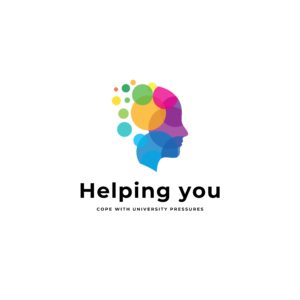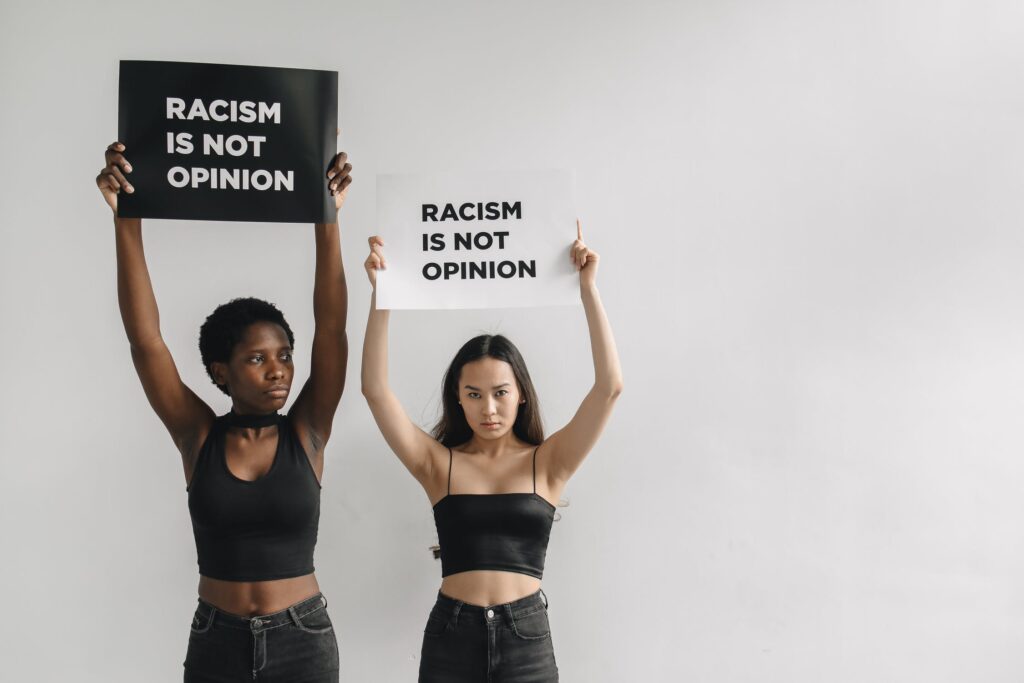Black students specifically those with darker skin are disproportionately affected by racism and microaggressions in universities. They continuously endure comments and behaviors which may leave emotional scars. These may manifest as symptoms of poor mental health. To understand racism at University a bit more read my blog Black bodies in a University setting.
Microaggressions are broken down into categories:
Microassaults (blatant racism) – use of obvious racial derogations verbally or non-verbally usually deliberately and on purpose. For example:
- Racial Slurs
- N- word
- Coloured
- Avoidant behaviour – moving away from you.
- Being left out of group discussions
- Laughing at or imitating their accent
- Showing negative and positive representations of Black people and white people respectively.
Microinsult – these are the most common ones and tricky to prove. They’re used to subtly convey hidden insults to demean someone’s identity. The perpetrator may not be aware of their biases or prejudice. They can be verbal, nonverbal. For example
- Being followed around a store
- I don’t see colour
- You’re a credit to your people – as though they’re an exception to the rule
- Your English is really good
- You’re Black, how come you’re not good at dancing/ rapping? (stereotyping)
- You’re intimidating / aggressive
- Being asked for ID while others are not
- Mistaking a Black lecturer for a cleaner
- You’re veritably fantastic (intended compliment but endured as racially grounded).
- You’re being an angry Black woman – at some point in this world, everyone will get angry. This recrimination is that this is just a thing that Black women feel to find joy in.
Microinvalidation – these are more subtle and insidious. These happen when someone says or implies to a Black student that their experiences of discrimination are not real. The perpetrator almost is not fully aware they’re doing something harmful. Although they may not mean to do harm, harm is caused nevertheless. For example, when someone tells you that:
- You’re being oversensitive.
- I’m sure they did not mean anything / any harm
- You’re being oversensitive
- Your colour does not matter to me, everyone’s human
- All lives matter
- You are imagining it
- Racism doesn’t exist anymore
- Anyone can succeed if they work hard enough
- I’ve got many Black friends; I cannot be racist
- You should try to fit in further
The toll racism and microaggression on mental health
- The microaggressions above will leave you feeling out of place, like you don’t belong. You may become hyperaware of the surroundings, which can be exhausting and takes a toll on your mental health.
- Viewing racist posts by classmates on social media – Twitter, WhatsApp, Facebook, can leave you feeling betrayed, frustrated, angry, powerless and sad.
- Encountering racism is more likely to lead to onset mental health problems including trauma.
- You may end up feeling low, isolating and lonely because you don’t feel welcome. This is common if you hear it being implied that you don’t belong.
- Microinvalidation like gaslighting can leave you confused and not sure whether you’ve experienced racism. You start to question your reality.
- To protect yourself, you may feel the need to suppress how you feel which leaves you numb, carrying the negative experiences for a long time.
- If these experiences happen regularly, you may feel worn down and exhausted, like you are engulfed by racism wherever you go.
- Being treated unfairly and discriminatorily will leave you feeling powerless, frustrated and angry.
- Racism may lead to constant worry about how you are going to be perceived, leaving you anxious and feeling unsafe.
From speaking to Black students, racism doesn’t end in classrooms. Many have reported being victims in their university accommodations too
Additionally, a report by Unite students accommodation did not make for comfortable reading. It reported that 54% of Black students were victims while 67% had witnessed racism. Only 43% felt a sense of belonging in their accommodation. ¾ of the students reported that racism had negatively affected their wellbeing.
Although many universities claim to have “zero-tolerance on racism” Black students still feel they must do more to tackle racism.
The most fundamental flaw in the ‘zero-tolerance’ policy is that it is very difficult to take microaggressions seriously when most staff members are white. The majority will probably not be able to understand the gravity of it and its impact on our mental health.
In some halls, some Black students reported ‘ghettoization’ as a perception. This is from the word ghetto (a part of a city in which usually a minoritized group of people live due to systematic racism). Segregation between Black and white students in halls was reported.
Because microaggressions are subtle and carry hidden insults, they are difficult to prove, and this stops many students from reporting them. On occasions they are reported, those concerned say they will ‘chase it up’ and students don’t hear back from them.
There is also the issue of the shortage of Black counsellors or Wellbeing Advisors or Mental Health Advisors at universities.
Possible Solutions
- Mandatory meaningful race training for staff members.
- Race training to be included in the curriculum, as well as mental health.
- Representation matters – improving the representation of Black people as employees to reflect the diversity of students is important.
- Access to culturally relevant services – food and hair care.
- Universities must involve Black students when making strategies and regularly review them
- Universities should systematically collect data from students (feedback, survey)
With all the above it is crucial that a whole-university approach be adopted
For more information read this report:
tackling-racial-harassment-in-higher-education.pdf (universitiesuk.ac.uk)
Support
- Click Here for NHS IAPT – find free non urgent NHS psychological therapies services near you.
- Click Here for the Black, African and Asian Therapy network.
- Click Here for Black River Counselling – free online service for people of Black African/African-Caribbean (Lambeth& Southwark residents.
- Click Here for Lateef project – free Islamic Counselling (Birmingham and London residents)
- Click Here for Maya Centre for free culturally sensitive counselling for women experiencing mental health issues.
- Click Here for Qalb Centre – Free counselling and holistic support for BAME women, couples and groups.
- Click Here for The Listening place – Free support for those experiencing suicidal thoughts.
- Click Here for Black Minds Matter UK – Connecting Black students to free mental health services by Black Therapists


Such an insightful post, what you are doing for the community is inspiring.